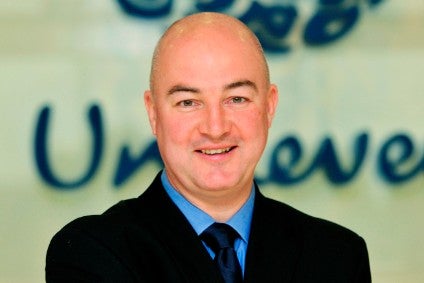
Unilever’s new chief executive officer Alan Jope has told an audience at the World Economic Forum at Davos in Switzerland that the consumer goods market is undergoing “seismic change”.
“After 100 years of evolution the consumer products industry is at the tipping point of revolution,” he said.

Discover B2B Marketing That Performs
Combine business intelligence and editorial excellence to reach engaged professionals across 36 leading media platforms.
Speaking at a Strategic Outlook on Consumption panel, the boss of the Anglo-Dutch consumer goods giant – which owns food brands such as Hellmann’s, Knorr and Magnum – said brands now have to be very clear in the purpose they serve.
He said that consumers wanted to know how brands are “making society and the planet a little better”.
“We are seeing seismic change and are predicting the continuation of enormous change,” he said.
Jope, who was named as the successor to long-standing Unilever CEO Paul Polman in November, said the current climate is a result of changing consumer behaviour often linked to demographic trends.

US Tariffs are shifting - will you react or anticipate?
Don’t let policy changes catch you off guard. Stay proactive with real-time data and expert analysis.
By GlobalData“There are countries which are extraordinarily young in their profiles. When you are talking about doing business in India, Bangladesh, Nigeria and the Philippines, these are markets where Gen Z is the biggest cohort,” he said.
“Averages are meaningless……micro targeting and ensuring relevance of the offering to highly differentiated groups of consumers is a big part of how we are thinking about the world right now.
“We need to be able to handle much smaller homogenous groups.”
Jope told the audience that Unilever had seen “dramatically better” growth on brands that compete on purpose – described as an “absolute magnet” – and suggested doing the right thing in consumers’ eyes – will continue to be a priority.
“Large groups of consumers are becoming angry about issues around responsible consumption and sourcing,” he said.
“It is very high on our radar to do something about plastic waste that is above and beyond the commitments the industry has made because that is what people care about right now.”
His comments were echoed by fellow panellist David MacLennan, the CEO of US agri-food giant Cargill.
He said: “There is incredible change in the [food] industry right now.
“People want to know who made it and who is in the supply chain and what are their ethical standards.
“Transparency in food manufacturing and the supply chain is vital right now.
“More and more people are making value-based decisions around their food.”





